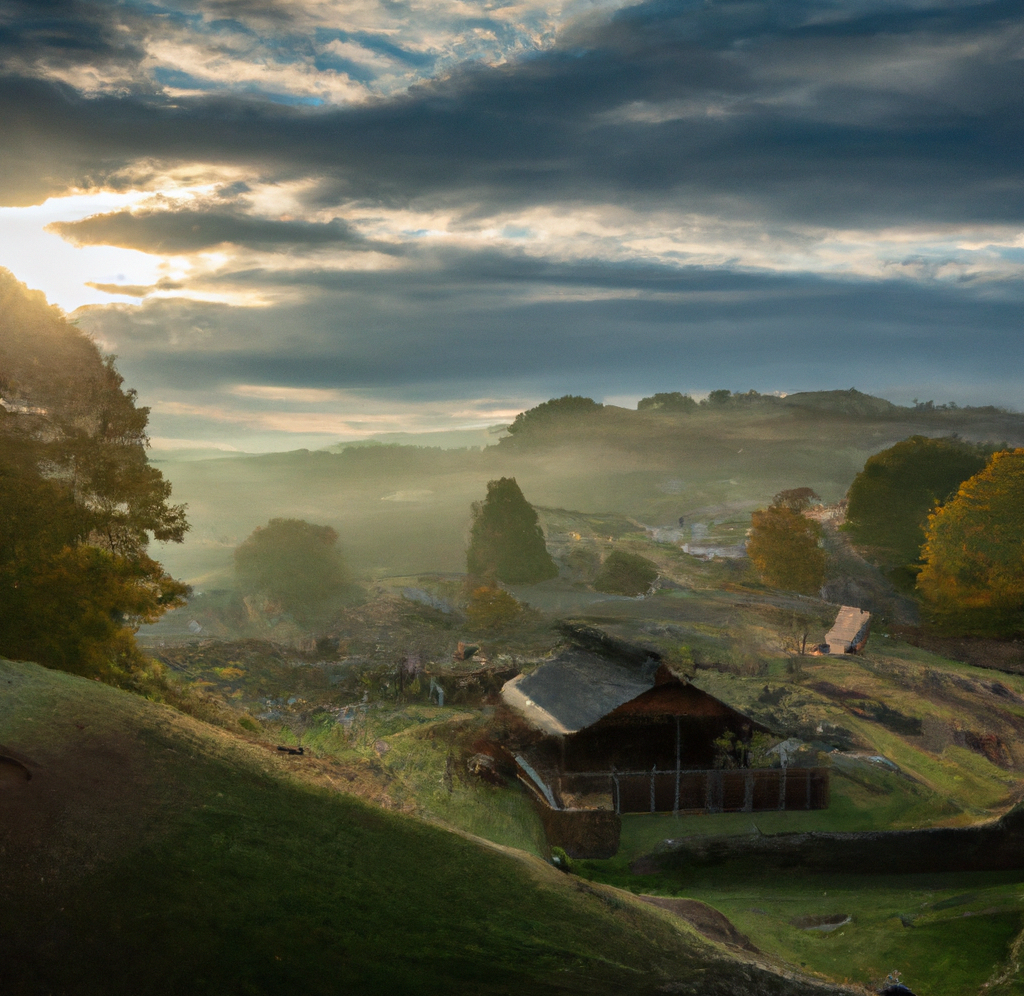For the fire…spread from sea to sea, fed by the hands of our foes in the east, and did not cease, until, destroying the neighboring towns and lands, it reached the other side of the island, and dipped its red and savage tongue in the western ocean. In these assaults…all the columns were levelled with the ground by the frequent strokes of the battering-ram, all the husbandmen routed, together with their bishops, priests and people, whilst the sword gleamed, and the flames crackled around them on every side. Lamentable to behold, in the midst of the streets lay the tops of lofty towers, tumbled to the ground, stones of high walls, holy altars, fragments of human bodies, covered with livid clots of coagulated blood, looking as if they had been squeezed together in a press; and with no chance of being buried, save in the ruins of the houses, or in the ravening bellies of wild beasts and birds; with reverence be it spoken for their blessed souls, if, indeed, there were many found who were carried, at that time, into the high heaven by the holy angels… Some, therefore, of the miserable remnant, being taken in the mountains, were murdered in great numbers; others, constrained by famine, came and yielded themselves to be slaves for ever to their foes, running the risk of being instantly slain, which truly was the greatest favor that could be offered them: some others passed beyond the seas with loud lamentations instead of the voice of exhortation…Others, committing the safeguard of their lives, which were in continual jeopardy, to the mountains, precipices, thickly wooded forests and to the rocks of the seas (albeit with trembling hearts), remained still in their country.
It might be wrong to speak of the Saxons as if they were a single tribe, as they are more akin to a collection of dozens of large and small clans bound together by blood oaths and familial ties. They all share a common tongue however, and a strong penchant for raiding and battle to such a degree that the name of the tribe has become synonymous for ¨raider¨ to their neighbors.
Saxon society is a martial one, marked by a rigid caste system where all able-bodied freemen are expected to participate in military actions. The warriors do not care whether their adversary is a rival clan, a wealthy town or an Austrasian subjugation army, as long as they can show their prowess in battle and gain glory for now and the afterlife.
The division of its people into separate castes is not unique, but no other Germanic peoples are as strict as the Saxons when it comes to maintaining boundaries between these groups. Inter-caste marriage is punishable by death, and wergilds (blood money) are set based on the victims position in society.
The laws of the Saxons are as brutal and unforgiving as the people. Those accused of crimes often refuse to undergo tribal judgement in favor of trial by combat, invoking the gods as their witnesses. Woden All-Father blesses the blade of the righteous after all.
For hundreds of years charismatic warlords practiced the glory-bearing custom of gathering large bands of followers and setting sail to carve out their own kingdoms in fragmented Britannia, destroying the Celtic kingdoms and Roman rump states alike with fervor. But these large migrations have slowed down recently, and the Saxons have turned their attentions to the prosperous Frankish towns across the Rhine.
Bless our swords All-Father, for the storm will surely bring us an abundance of silver and glory.

